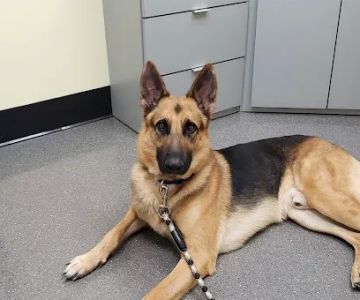What Course to Take to Become a Veterinarian: A Step-by-Step Guide
Becoming a veterinarian is a dream for many animal lovers, but it requires careful planning, dedication, and a solid educational foundation. If you're asking yourself, "What course to take to become a veterinarian?" you're not alone. It's important to understand that the path to becoming a licensed veterinarian involves a combination of undergraduate education, veterinary school, and hands-on experience. Let me walk you through the necessary steps and courses to help you embark on this rewarding career path.
1. The Educational Path: Undergraduate Degree
The journey to becoming a veterinarian typically begins with an undergraduate degree. While no specific major is required, it’s essential to focus on courses that will prepare you for veterinary school. Most aspiring veterinarians major in fields such as biology, animal science, or chemistry, but other science-based majors are also acceptable.
Here are some of the key courses you should take during your undergraduate years:
- Biology – A solid foundation in biology is crucial for understanding the fundamentals of animal life and health.
- Chemistry – Both general chemistry and organic chemistry are required for veterinary school applications.
- Physics – Some programs require knowledge of physics to better understand the mechanics of the body.
- Animal Science – Courses that explore animal behavior, health, and nutrition will give you a head start in understanding the animals you'll be caring for.
- Mathematics – A solid understanding of statistics and calculus is essential for the technical aspects of veterinary medicine.
2. Gaining Hands-On Experience
In addition to your academic studies, gaining practical experience is essential. Veterinary schools typically look for candidates who have hands-on experience working with animals. Volunteering or working at animal shelters, veterinary clinics, or farms will help you develop the skills you need to succeed. The more experience you gain, the better prepared you'll be for veterinary school.
3. Veterinary School: The Next Step
Once you've completed your undergraduate degree and gained relevant experience, it's time to apply to veterinary school. This is the next major step in becoming a veterinarian. Veterinary school typically takes four years to complete and includes both classroom education and practical training.
During veterinary school, you'll take specialized courses such as:
- Animal Anatomy and Physiology – Understanding the structure and function of animal bodies is essential for diagnosing and treating illnesses.
- Microbiology – This course covers infectious diseases in animals, which is crucial for preventing and treating conditions in veterinary practice.
- Pharmacology – Veterinarians must understand the use of medications and how they affect animals' bodies.
- Surgery and Diagnostic Techniques – Hands-on training in surgery and diagnostic procedures is critical for your development as a veterinarian.
4. Licensing and Certification
After completing veterinary school, you’ll need to pass the North American Veterinary Licensing Exam (NAVLE) to become licensed to practice in the United States. Depending on the state, there may be additional requirements or exams to complete. It's important to check with the veterinary licensing board in your state for specific details.
5. Additional Specialization and Continuing Education
Once you're a licensed veterinarian, you may choose to specialize in a specific area of veterinary medicine, such as surgery, dermatology, or dentistry. This will require additional training and certification. Additionally, veterinarians are encouraged to continue their education throughout their careers to stay updated on the latest medical advancements and technologies.
Whether you’re interested in working with pets, livestock, or wildlife, there are endless possibilities for a fulfilling career in veterinary medicine.
As you can see, becoming a veterinarian is a long but rewarding process. The courses you take, the experiences you gain, and the dedication you put into your education will set the stage for your future success in this important and impactful career.











